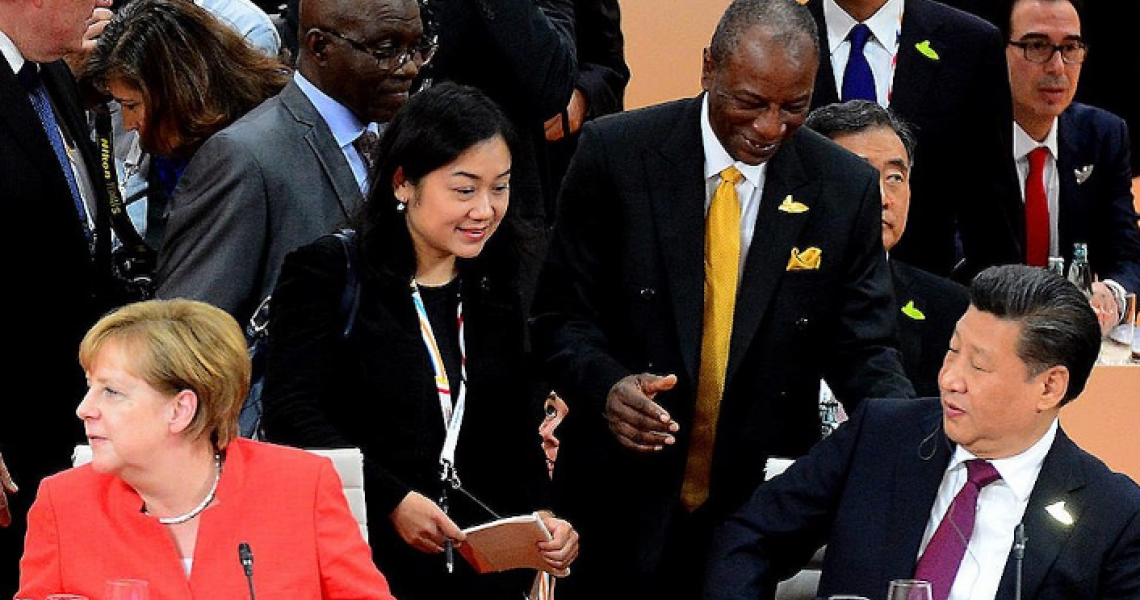By Zsuzsa Anna Ferenczy
With its economic strength, leadership skills and commitment to the European project, Germany is in the position to accelerate the much-needed shift in EU-China relations. Will Berlin want to act?
On July 1 Germany took over the presidency of the Council of the European Union. The aim, as German Foreign Minister Heiko Maas said, is to succeed in positioning Europe as a united entity in the global great-power rivalry between the US, China and Russia. In the midst of a pandemic, the coming six months for Chancellor Angela Merkel’s last year in office promise to be particularly challenging. Nonetheless, a divided Europe expects Berlin to deliver.
As one of its priorities, Berlin wants to expand cooperation with China and work to foster greater reciprocity. For Berlin, China’s biggest trading partner in Europe, the EU has a “great strategic interest” in maintaining cooperation. As such, Economy and Energy Minister Peter Altmaier recently defended Germany’s trade relations with China, just as Beijing passed a new security law in Hong Kong, a highly controversial act which the European Parliament condemned as “a comprehensive assault on the city’s autonomy, rule of law, and fundamental freedoms”.
Germany has some of the key drivers to live up to the expectations: the leadership skills, the economic strength and a solid record of commitment to the European project rooted in the defence of human rights, rule of law and democracy. But to succeed, Berlin will need more: internally, to consolidate its own China policy and to unite the EU around it, and externally, to work withdemocratic allies to withstandauthoritarianefforts to undermine democracy. Above all, it is Berlin’s will to act that will matter most.
Former Polish Foreign Minister Radek Sikorski’s words almost a decade ago in Berlin are particularly fitting for Europe’s expectations of Germany in shifting Europe’s position on China: “I fear German power less than I am beginning to fear German inactivity”. If Germany wants to strengthen its central role in shaping Europe’s future, the moment to act is now. But Germany’s commercial interests must not override values.
Germany’s economic power has shaped Sino-German ties, ensuring Berlin a position of strength within the EU vis-à-vis China. But it has also jeopardized Germany’s leading role in high-tech manufacturing while supporting Beijing’s state-driven economic model. The 2016 acquisition of Kuka, a German robotics manufacturer, by China’s Midea for 4.5 billion EUR, was a wake-up call. Berlin’s stance has toughened. But while the US has abandoned its ambition for a more closely integrated relationship with China, Germany does not follow the same path.
In reality, Germany remains split between cooperation and calls for a tougher stance on China. While Germany’s Foreign Minister urged Beijing to clarify its position on interning Uyghurs in prison camps, German carmaker VW has defended its presence in Xinjiang, justifying its decision as “purely economic”. Chancellor Merkel declared Berlin aims to maintain a “critical, constructive” dialogue with Beijing, for which she has come under heavy criticism.
The chairman of the Bundestag’s human rights committee Gyde Jensen said the Chancellor must make it clear to China that “for the EU human rights are not negotiable”. At the same time, Germany’s influential Federation of German Industries (BDI) has also signaled it wants a tougher China policy. With the Presidency, Berlin’s failure to act on such demands and instead maintain its commercial interests at the expense of speaking up for human rights, is even more relevant to the EU’s efforts to rebalance its China policy.
Inside the EU, consensus has finally emerged on the urgency to address the asymmetry with China, which in 2019 the European Commission labeled as Europe’s “systemic rival”. The Commission even accused China for engagement in targeted influence operations around COVID-19 in the EU, seeking to undermine democratic debate.
This consensus is however vulnerable, as member states seek their interests bilaterally with Beijing. With a deterioration in US-China relations, the EU’s leverage over China is now increasing. It is around this reality that Berlin must bring member states together. It must lead to keep up joint pressure on China and demand reciprocity and the respect for human rights. Finally, for the shift in the EU’s China policy to be sustainable, cooperation on global challenges with China must remain. Will Berlin want to live up to Europe’s expectations?
The author, Zsuzsa Anna Ferenczy, is an Advisor at the Brussels based NGO Human Rights Without Frontiers.




